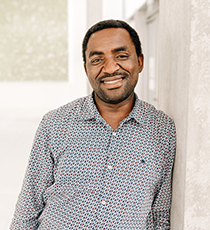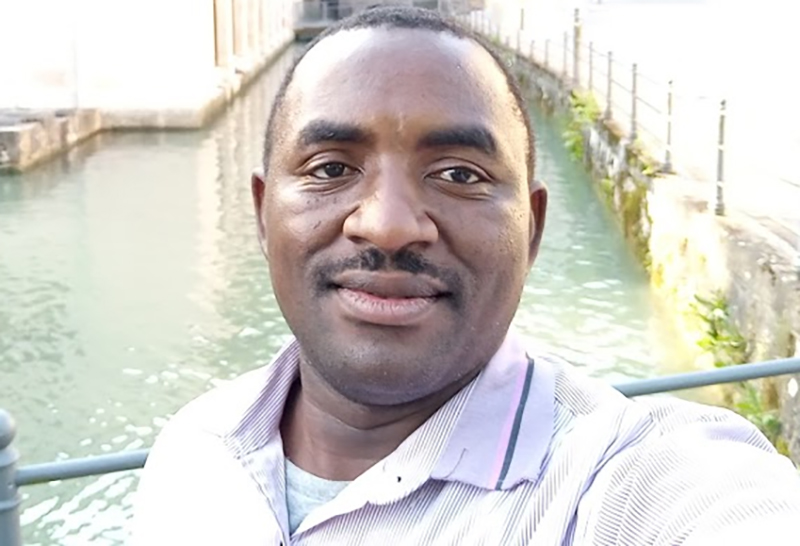Open-Source-Lernplattform für Augmented Reality in der Lehre
Der Doktorand Deogratias Shidende entwickelt eine Lernplattform, die freizugänglich sein wird, damit Dozent*innen mit geringem technischen Wissen Augmented Reality Technologien zur Wissensvermittlung nutzen können.
Mit dem „Innovationsprogramm Forschung“ (IPF) fördert die Duale Hochschule Baden-Württemberg den akademischen Mittelbau sowie die Themen Forschung, Innovation und Transfer. Sieben Doktorand*innen forschen und lehren mithilfe dieses Programms für jeweils drei Jahre an der DHBW Heidenheim. Einer davon ist Deogratias Shidende, er entwickelt eine Open-Source-Lernplattform für Dozent*innen mit wenig technischem Wissen, damit diese Augmented-Reality-Lernanwendungen für ihre Studierenden erstellen können.
Titel der Arbeit: An Accessible Open-Source Augmented Reality Learning Authoring Platform for Engineering and Sciences
Forschungsthema: Augmented Reality (AR) is a technology that superimposes the real-world objects with virtual generated information in the same space, thus providing a more useful composite view. AR is becoming a very popular learning technology as it creates an immersive hybrid learning environment that facilitates critical thinking, problem-solving and communicating through interdependent collaboration exercises. Studies show that most AR applications are being developed by using proprietary Software Development Kits (SDK) which have heavy substantial annual licence fees and thus becoming an obstacle for many small to mid-sized companies as well as lower and higher learning institutions. Developing these learning applications using existing SDK requires technical knowledge such as programming which, according to many studies, lacks among many teachers. This research, therefore, wants to develop an accessible open-source AR learning authoring platform that will enable lecturers with little technical knowledge to author learning applications for their students.
Methode: Interviews and continuous focus group discussions as a design thinking workshops will be carried out with companies, programmers, lecturers, and students. To get more user requirements, document review from existing AR applications and libraries will be performed as well as developing various prototypes to exemplify these requirements. The agile development with Scrum will be used to develop the authoring tool through a source code repository for stakeholders’ collaboration. Finally, usability testing will be conducted for enhancement of AR platform.
Doktormutter/ -vater: Prof. Dr. Anna Treydte, Universität Hohenheim und Prof. Dr. Sabine Möbs, Duale Hochschule Baden-Württemberg Heidenheim
Hintergrund: Deogratias Shidende studied Computer Science at the University of Dar es Salaam in Tanzania and did his Master degree in Information and Communication Science and Engineering at the Nelson Mandela African Institution of Science and Technology (NM-AIST) in Tanzania. The 44-year-old has been working as an Assistant Lecturer at Ruaha Catholic University lecturing programming, database and software development courses. He worked as Systems Administrator with various academic institutions and is now an academic staff member at the DHBW Heidenheim.
Motivation für die Forschungsarbeit: Deogratias Shidende wants to show that learning technology is free, open-source and accessible to all people regardless of their circumstances. And that both teachers and students should have fun and enjoy the learning process.
Kontakt
Marienstraße 20, Raum 104, 89518 Heidenheim
- Telefon
- +49.7321.2722.296

